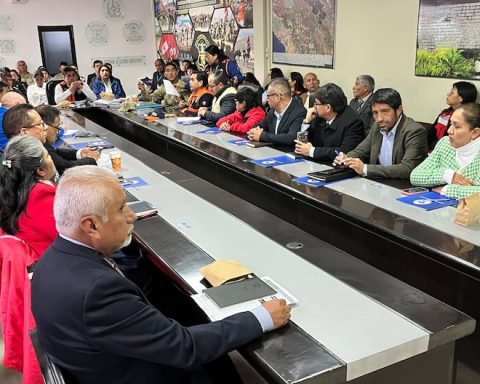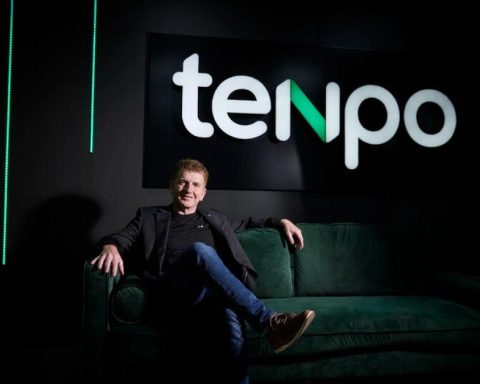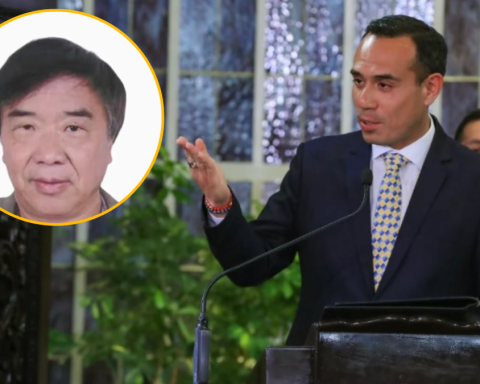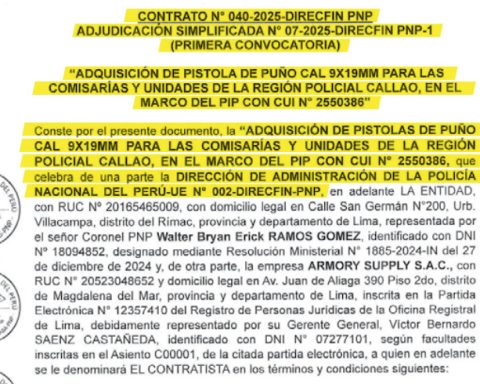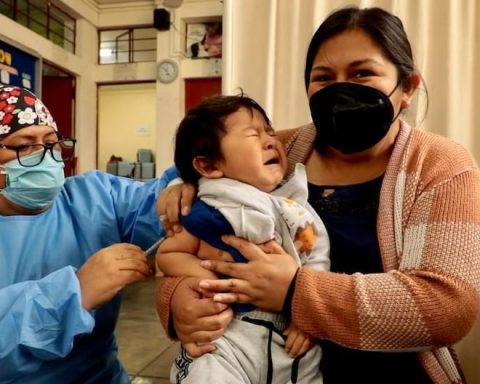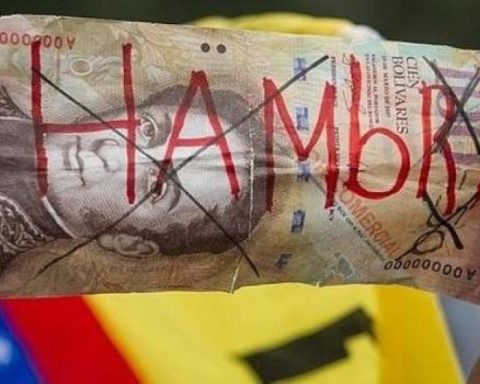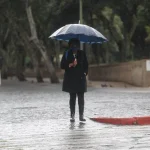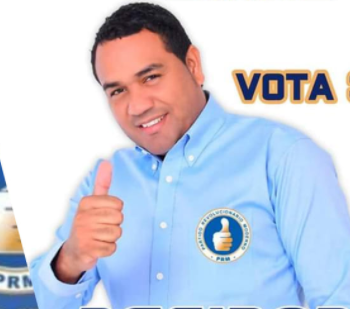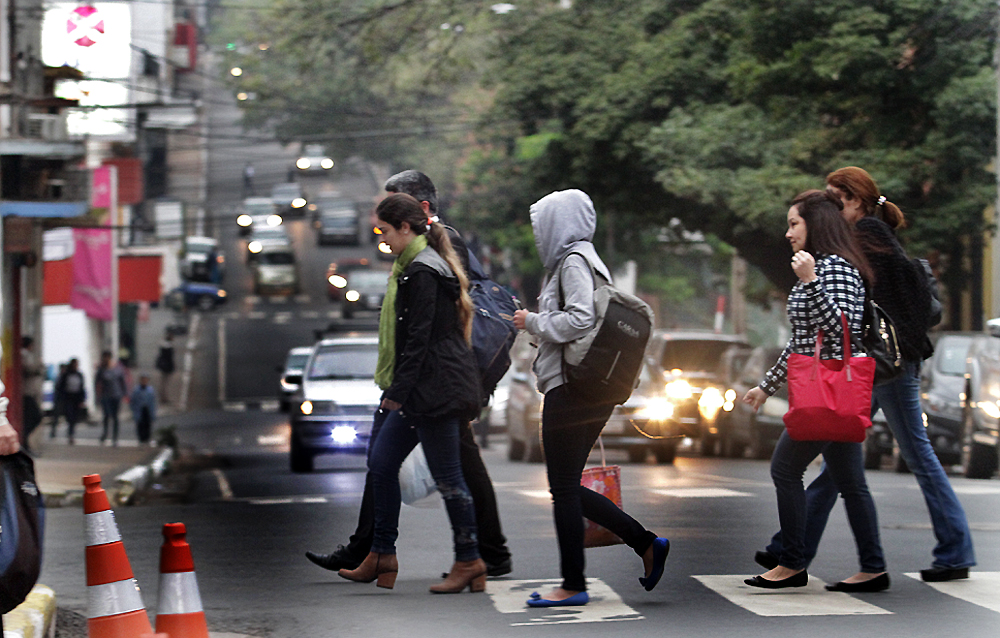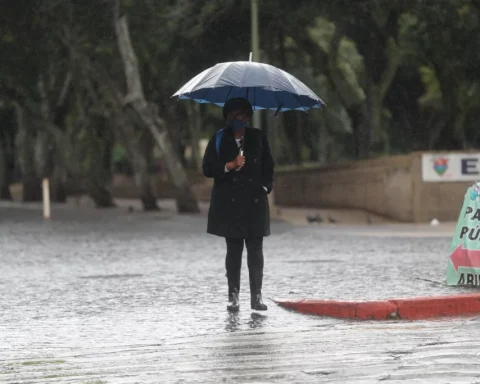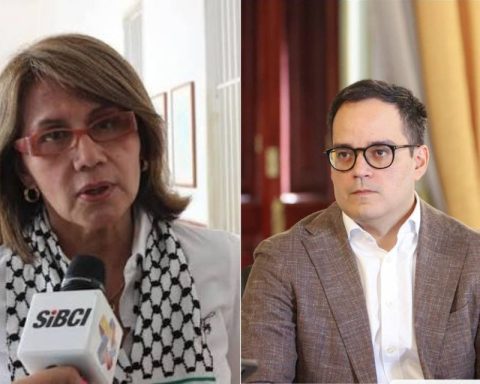The Minister of Economy, oscar graham, received us at the MEF headquarters last Friday. Minutes earlier he had been in a meeting with President Castillo while in Huancayo the protests were beginning to heat up.
Before coming to the interview I had to do the market, the discontent –not only of the merchants but of the families– is felt. Before, 10 soles were enough for a kilo of chicken and a kilo of potatoes. Not even that today. What is the MEF doing to resolve the situation?
We have an external context in which the prices of oil, corn, wheat have risen, which are basic inputs that we have to import. These rises have been exacerbated by the conflict between Russia and Ukraine. It is an international phenomenon and, furthermore, if we look at the regional level, we are doing better in terms of controlling inflation. We have an inflation close to 6%, while in Colombia, Chile and Mexico they are over 8%. It is not a local issue, nor is it the responsibility of the government. This is a temporary phenomenon, according to the Central Reserve Bank, by the end of the year the unusual price increases would dissipate.
SIGHT: Unemployment in Huancayo: This was the day of protests that broke out in the city [GALERÍA]
Does the MEF promote the increase of the minimum vital remuneration?
It is necessary to consider that for more than four years there has not been an update of the minimum vital remuneration. There is a space to make an update, the issue is what is the moment and the amount.
The Ministry of Labor speaks of an increase that can raise the RMV to S/ 1,025. Is it feasible?
There is room to increase. But we must consider the sectors of the economy that benefit and others that may be affected. An adequate balance must be made when these types of measures are implemented and this evaluation must be done by the Ministry of Labor.
This increase can benefit workers who are on the payroll, but where are the informal ones? 70% of Peruvians live from day to day and eat with what they get daily. What measures are there for them?
I agree with the number you mention. We have to work on an agenda to formalize our economy. The only way is to have a productivity improvement approach. The vast majority of people who are informal is because their level of productivity is not enough to cover the costs of formalization. A strategy of incentives, facilitation of procedures, access to credit and simplification of labor and tax regimes must be made.
There is distrust on the part of businessmen in the country. What will the MEF do to recover it?
Trust has three aspects. Confidence in the country: macro solidity. In two weeks, the bill for the new fiscal rules must be approved in the Council of Ministers and then presented in Congress. The objective is to reach a deficit of 1% in 2026. The other part is that there will not be an abrupt change in the rules of the game: we are respectful of the social market economy and we encourage private initiative. The second aspect is to begin to see topics by sectors because each sector has a particular problem. And the last point is to work on emblematic works such as the unlocking of Majes – Siguas.
Minister, you know better than anyone that there are sectors in the government that don’t want you. And they have already faced him for the Petroperú case. Are you calm in this portfolio?
The President of the Republic has given me confidence. As Minister of Economy, I am the main adviser on economic issues to the government. Beyond confrontations, I focus on the responsibility that I have at the head of the Ministry of Economy.
But can you work with constant harassment?
When one is a public servant, there is no condition to work comfortably. You know you have to coordinate with different teams that don’t think alike. I have been a public official for more than 30 years and have worked with different regimes and the most important thing is to work as a team and achieve results.
your predecessor Peter Francke He said –after leaving– that President Castillo did not receive him. How is the deal with you?
I have a permanent and fluid dialogue with the President of the Republic. I expose the ideas to him so that he can make the decisions that he deems necessary.
Don’t you keep him waiting like Francke?
We have frequent meetings (with the president).
Did you talk this Friday about what is happening in Huancayo?
It was one of the themes. It is of great concern. We recognize the right to protest, but that cannot affect the most vulnerable population. There can be no roadblocks.
But don’t you think that the president threw gasoline on the fire with his words against the leaders: “paid” “malicious”?
What we have to do is de-escalate this conflict and we as ministers have the responsibility to negotiate at the highest level and seek solutions to these problems.
How are things in Petroperú with the departure of Hugo Chávez?
Petroperú is a profitable company and a change in the board of directors is needed. This directory must decide the changes in the administration that are required. Within two weeks the modernization operations of the Talara refinery will begin. Once the governance problem has been resolved, the other pending problems will be solved: audit of the accounting and financial statements, improvement of the risk rating and the agreement that has to be reached with the company’s creditors.
The former president of Petroperú Carlos Paredes said that the entry of private capital into the state company could be viable.
In general, you always have to evaluate. It must be remembered that state resources are scarce. It would have to be raised by the new board.
But from your experience, do you think it is possible, that it would improve management in Petroperú?
There are cases and cases. I would not like to focus on the issue of Petroperú. Private investment usually brings several things. Bring expertise, bring capital, and that is usually recommended when there are incentives, a plus, in these two senses. If the company, for example, cannot borrow or has limitations, sometimes a public company requires new investors or requires an investor who brings better expertise. I could not speak specifically to you at this time about the Petroperú case.
A bill was presented in Congress that is proposing to the MEF to eliminate the selective consumption tax for fuels, while the crisis lasts. Is that possible?
The selective consumption tax (ISC) must be considered as a fixed tax. In other words, that tax does not go up as the price of fuel goes up. That ISC in the case of diesel is already returned in almost 53% for cargo and passenger transport and what has even been improved is the way to access this refund. However, doing it in a generalized way brings a more complex problem because it takes away the collection that precisely allows us to generate those resources to have these focused investments. Furthermore, it would be a blind elimination that would benefit everyone, and what we have to do –given the nature of the crisis– are focused and temporary measures.
(Editor’s Note: Despite this technical explanation from the minister, yesterday – from Junín – he promised the transport leaders the reduction of the ISC for fuels by 90%)
What is the status of the Reactiva program? Is it true that there are many companies that cannot pay and that is causing the State to assume the debts?
No, actually, when Reactiva was approved, it was estimated –given the magnitude of the crisis– that it could have a delinquency greater than 20%. The program was extremely helpful in supporting liquidity and has helped the economy recover quickly. I tell you, it started with a projected delinquency rate of 20%, and today the program has already begun to recover. Some companies have prepaid and what we have at this moment is that delinquency to date is around 1.3%. So, if one compares that delinquency of 1.3% with, for example, the delinquency of loans to microenterprises, then it is a delinquency that is not even a quarter of what is usually incurred when lending through an entity financial.
What big projects is the MEF going to promote to boost the economy? What big mining projects, for example?
No miners, only those that are already in process. Quellaveco that will start operations this year. But there are projects that are being unblocked, for example an emblematic project is that of Majes-Siguas, where fortunately the missing addendum has already been signed and some disbursements have to be made to speed up the CAF support issue. This project is emblematic because it also represents more than 38,000 hectares of arable land and will generate more than 100,000 jobs. And there are other projects such as the North Pier (Callao), the continuity of Line 2, which are emblematic projects in which we are going to put all our efforts.
SIGHT: Utilities 2022: until when can this benefit be received and how to calculate it?
A few minutes ago one of the government advisers (Daniel Salaverry) said that they were seeking to oxygenate the Cabinet. Do you feel safe here, have you received the support of the President of the Republic, do you feel safe that he will continue?
The president makes a continuous evaluation of the ministers and definitely, being a position of trust, one has to do his job with the greatest responsibility. Remember that in positions of trust one is certain of when they appoint you, but not when your assignment ends. And that is an evaluation that the President of the Republic constantly makes.
Who do you not get along with in the Cabinet?
(Laughter) I get along with all the ministers.
Do you get along with the Minister of Labor?
With everyone. With Betssy (Chavez), with Jorge (Prado), with Alejandro (Salas), with everyone. We are a work team in which we have permanent coordination.
KEEP IN MIND
- “We do not plan to allocate more resources for collective bargaining processes. Obviously what we came up with was how a minimum floor could be made to be able to equate the different claim specifications, but it is part of the negotiation,” said Graham.
- “The International Monetary Fund report concludes that we have a competitive tax system that applies to mining and, obviously, a very fine evaluation of any modification must be made,” said the Minister of Economy.

